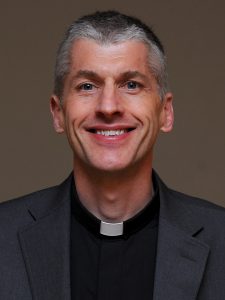 By Pastor Craig Pederson
By Pastor Craig Pederson
I’m writing this blog near the end of another Black Friday weekend, which seems to get more “biblical” every year. By that I mean that the seven days it took for God to create the heavens and the earth don’t really align with our chronological understanding of a “day.” Likewise, Black Friday is no longer just one day on the calendar – it’s an event, an experience, a season unto itself. It starts several days ahead of the Friday after Thanksgiving, and extends a few days after, ending with the arrival of its commercial friend, Cyber Monday.
This Black Friday phenomena was created by retailers driven to give us prime opportunities to get everything we could ever want for the best prices possible – and also driven to get their net earnings out of the red ink and into the black as soon as possible (thus “Black” Friday). It feeds our need and longing and desire to ensure we have enough – enough of the material things that we hope will give us comfort, enjoyment, security, and meaning.
Black Friday provides a strange contrast to the season of Advent we observe as Christians. Advent teaches us to wait, to prepare for the One who is coming, the One who will bring comfort and joy and meaning. Black Friday and the holiday shopping season teach us that the best time to get what we want and need is right now – so don’t wait, and don’t be left without the things that will complete your life.
WHETHER WE ARE IN the midst of the holidays or not, what really motivates our pursuit of “enoughness?” Episcopal author David Zahl asserts that religious faith decreasingly fills that role – at least religious faith as we know it now. The title of his new book is long, provocative, and highly descriptive: Seculosity: How Career, Parenting, Technology, Food, Politics, and Romance Became Our New Religion and What to Do about It.
Zahl says religion is not disappearing; it just looks different. Zahl defines religion as “that which we rely on not just for meaning or hope but enoughness.”
“David Zahl makes an interesting move, saying that our pursuit of enoughness is essentially the same as our pursuit of righteousness.”
And then Zahl makes an interesting move, saying that our pursuit of enoughness is essentially the same as our pursuit of righteousness. “The theological and psychological term for the energy we expend for the sake of feeling righteous is self-justification, and it cannot be overstated as a motivation in human affairs.”
Yet rather than finding righteousness through faith-based doctrines, rituals, and practices learned at church, Zahl says:
[Polls] tell us that confidence in the religious narratives we’ve inherited has collapsed. What they fail to report is that the marketplace in replacement religion is booming. We may be sleeping in on Sunday mornings in greater numbers, but we’ve never been more pious. Religious observance hasn’t faded amidst ‘secularization’ so much as migrated—and we’ve got the anxiety to prove it. We’re seldom not in church.
PEOPLE INCREASINGLY PURSUE enoughness through secular endeavors they can pour themselves into: political causes, fitness courses, parenting methodologies, food and drink philosophies, professional advancement, personal improvement plans, and yes, material acquisition. These endeavors produce results that feel more controllable, tangible, and immediate.
But complete enoughness is ultimately unattainable. The goalposts move, the measurements change, our appetites grow, and we just can’t quite get there.
I’m not entirely finished with the book, but Seculosity has made an impact on me this year. As I found myself aimlessly pouring over Black Friday ads, pondering endless vehicle commercials, glancing at new home listings online, perusing new fitness classes at my health club, and hearing about all the music lessons and personal sports workouts that other parents are arranging for their kids, I asked myself, “Am I doing enough? Do I have enough?”
And I’m a pastor. I’m supposed to have all of this in the proper perspective, right?
“David Zahl defines religion as ‘that which we rely on not just for meaning or hope but enoughness.’”
Dear friends, in this Advent season of preparation and waiting, I encourage you to claim/reclaim the power and promise that God says we are enough. Reaffirm that your church is a place where tired, anxious, overworked souls can hear the good news that they are enough. One is coming to reveal that this is so.
Of this One it is said, “The spirit of the Lord shall rest on him, the spirit of wisdom and understanding, the spirit of counsel and might, the spirit of knowledge and the fear of the Lord. His delight shall be in the fear of the Lord. He shall not judge by what his eyes see, or decide by what his ears hear; but with righteousness he shall judge the poor, and decide with equity for the meek of the earth . . .” (Isaiah 11:2-4).
Blessed Advent and Christmas season to you all!
